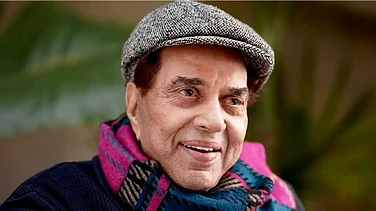Standing Up To Big labels
- Artistes forming their own labels to record, distribute and promote indie music.
- Indie bands can make anywhere between Rs 50,000 to Rs 5 lakh a gig these days.
- Shubha Mudgal’s label Underscore gives 80% of proceeds to artistes.
- Only Much Louder egged fans into copying over 8,000 CDs of Zero, another band.
- Bands such as Them Clones have published their music online for free for fans.
- Websites like cdbaby.com distributes indie music to fans the world over
- Adidas helped Jalebee Cartel make over 3,000 free CDs for their gigs.
***
Gaurav Vaz of indie band The Raghu Dixit Project (TRDP) is living his dream. Two years ago, he quit his ‘regular’ job as a software engineer and became a full-time musician. And today, the band’s calendar is chock-a-block. Next month, they are touring England, doing seven gigs in all. “Music is always treated as a ‘hobby’. But a career in music requires the same effort as any mainstream career,” says Vaz. Sanju V. Abraham, a 28-year-old employee with Accenture, hasn’t figured this out yet. “I completed an audio engineering course but I don’t know what to do with it,” he says. His band is a “bunch of guys from work” and they practise after clocking out of the office. Ajesh Balachandran, 28, an account manager with beermaker Carlsberg, is looking for a break as a vocalist and is just as unsure. He asks, “Isn’t it the rich dudes, who move with the right set, who get all the chances?”
Vaz, TRDP’s manager and bass guitarist, has the answers. All the new bunch lack, he says, is the “right knowledge”. “The equipment, the software, access to new music and to global music developments via the internet—all these things are available. They just need to learn how to use them,” he says. In a space where no formal music education outlets exist, unless operated by instrument-makers out to make money from sales, this knowledge is hard to come by.
“The way music is taught in India is rather sorry,” says Shubha Mudgal, bluntly. It’s why she and her husband, Aneesh Pradhan, started conducting free workshops, funded by the Ford Foundation, specifically for artistes and music educators in schools. Similarly, other industry veterans are also turning teachers, showing newbies the ropes at workshops and conventions. This is now more critical than ever since the independent or indie music scene that emerged in the early ’90s is now showing signs of becoming an ‘industry’. Unabashedly Indian sounds, drawing on regional influences and local flavours, like Swarathma, TRDP and Motherjane, have found their space and are playing at numerous gigs both in India and abroad. Others such as B.L.O.T, comprising Gaurav Malaker and Avinash Kumar, who fuse electronic music with “visual jockeying”, are on the cutting edge of music entertainment. With the much-awaited Coke Studio, the TV phenomenon which fuelled Pakistan’s indie scene, also slated to reach our shores through MTV on June 17, the future appears to be rocking.
Arjun S. Ravi, editor, indiecision.com, a web-based resource for indie music in India, is gung-ho. “Music as a full-time career is finally viable,” Ravi says. The biggest money-spinners are the live music venues across the country. “The Hard Rock Cafe has opened in five cities. As well, there are clubs and lounges sprouting in all major metros, paying for live music,” he adds. It means bands no longer have to pop their ‘live performance’ cherry at college festivals or pander to older venues that insist on “covers”. Popular acts, depending on the fanbase they’ve created over the internet and through word of mouth, can charge anywhere from Rs 50,000 to Rs 5 lakh per gig. Other music-based professions like sound engineering, artist management, stage management, music journalism, photography and PR are taking off too. It’s an exciting, emerging space, where creativity, originality and passion can help fashion a full-time career in music.
To spread the know-how on breaking into this space, the youth-led NGO, The YP Foundation, began the Open House Series. It kicked off in January this year and will run through 2011 in Delhi schools, colleges and cultural venues. “The idea was to educate the youth about the options they had in music and the resources to tap into,” says Ishita Chaudhury, the foundation’s founder. Covering practically every aspect of the business, these free workshops are conducted by some of the biggest names in the industry. The response so far has been great. Shouvanik Dey, 21, who attended the Open House music production workshop with Vishal Dadlani and Anindo Bose (Advaita), finally figured out why his demo CD sounded so bad. “Within an hour, I learned that the software I used to record my music was inferior. Now I am saving cash to buy the right equipment and software.” Anindo has continued to guide him, by connecting through Facebook. Delhi-based GigSupport, too, has devised creative ways to manage artistes and events—they help indie groups partner up with popular performers, venues and media houses.
Exchange programmes, like that offered by the British Council, help established bands too. The Council’s Sound Pad made it possible for four Indian bands—Medusa, Swarathma, Advaita and Indigo Children—to collaborate with top UK music producers like John Leckie (known for his work with Radiohead). Also, its Young Music Entrepreneur Award hosts Indian talent in the UK (like Vijay Nair of Only Much Louder), helping them pick up ideas and contacts.
These exchanges result in conventions like SoundBound, a three-day event in Mumbai, organised by Only Much Louder, British Council and Max Mueller Bhavan. “The hour-long sessions often stretched to around two hours and saw 45 people attend each session,” says Tasneem Vahanvaty, head of music, interactive and film at British Council. They focused on practical aspects of the business like copyright laws and provide advice on dealing with career-halting scenarios like the lead vocalist quitting.
It is this sort of practical advice that artistes like Ajesh Balachandran had been missing. He attended the Open House Series because he wanted to pick the brains of musicians who had ‘made it’. To his surprise, it turned out most indie bands were always ready to give tips and pass along contacts. Some even promoted new bands on their website or asked the new kids on the block to play the opening set of their concerts. Their advice to him was to go out and find gigs, even non-paying ones, just to find an audience. “I got over the fear of approaching them. From now on, I am going to talk to musicians I like by buying them a couple of beers after gigs.” For people like Ajesh, the time is now.






















